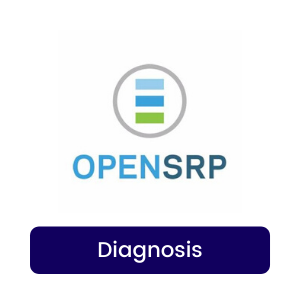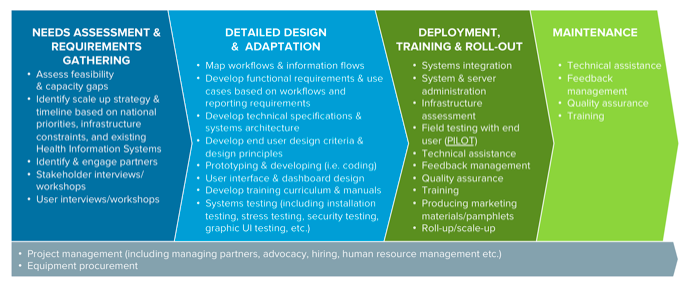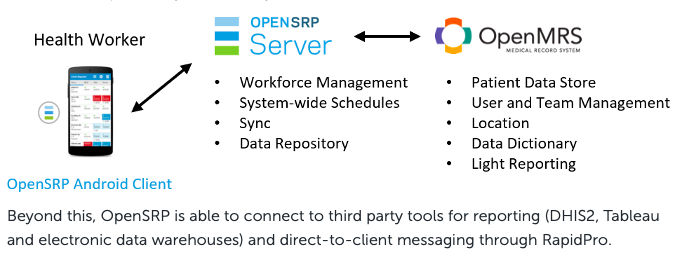Open SRP
OpenSRP

Open Smart Register Platform allows health workers to electronically register and track population health.
Decision support, multimedia counseling — OpenSRP builds on existing robust mobile technologies to deliver a powerful and dependable application to frontline health workers, empowering them to more effectively deliver and account for the care they provide to their clients.
Highlights
- OpenSRP can reduce the paper register and reporting burdens in health systems by providing frontline health workers and Ministries of Health with digital tools that improve:
- Client Identification and Registration - Allowing health workers to better track their clients and providing governments with a reliable tool for collecting data at the source, resulting in a more accurate denominator.
- Client Management - Promoting continuity of care across life stages and ensuring clients receive the complete package of health services with automated scheduling and showing reminders for follow-up visits and required services.
- Health Worker Workflow Support and Reporting - Supporting all cadres of frontline health workers in multiple geographies to provide quality care and submit quality data that is required for local and national health systems performance monitoring.
- Interoperability - Ability to integrate with existing, widely-used digital health information systems, such as DHIS2 and OpenMRS.
- Project Monitoring and Performance Management - Enabling Ministries of Health and other governing institutions to make data-driven decisions, provide feedback on performance, and ensure quality control.
- Supply Chain Management - Minimising stock-outs and wastage by providing oversight of supplies available in the field.
Use Cases
Frontline Health Workers, often the first and only contact for health care services in low- and middle-income countries, are burdened by archaic paper systems. Time spent on paperwork undermines the quality and coverage of essential services. Additionally, governments struggle to supervise this large workforce; ensure data quality and timeliness of reporting; and guarantee appropriate and equitable care under low resource conditions.



 Locations
Locations